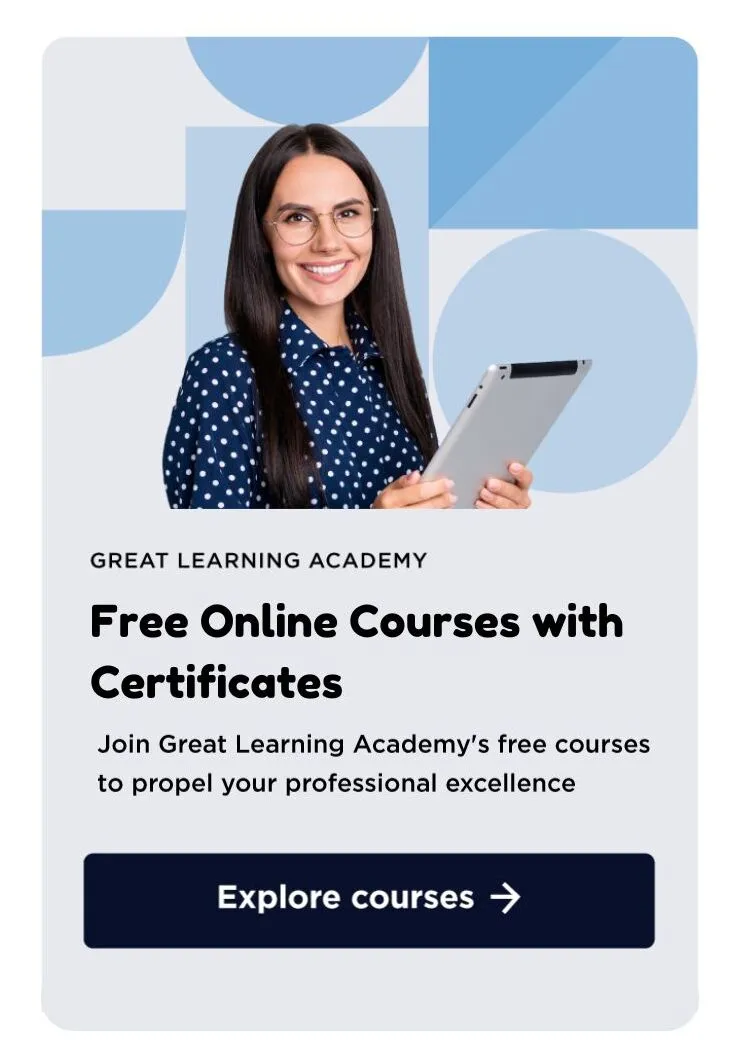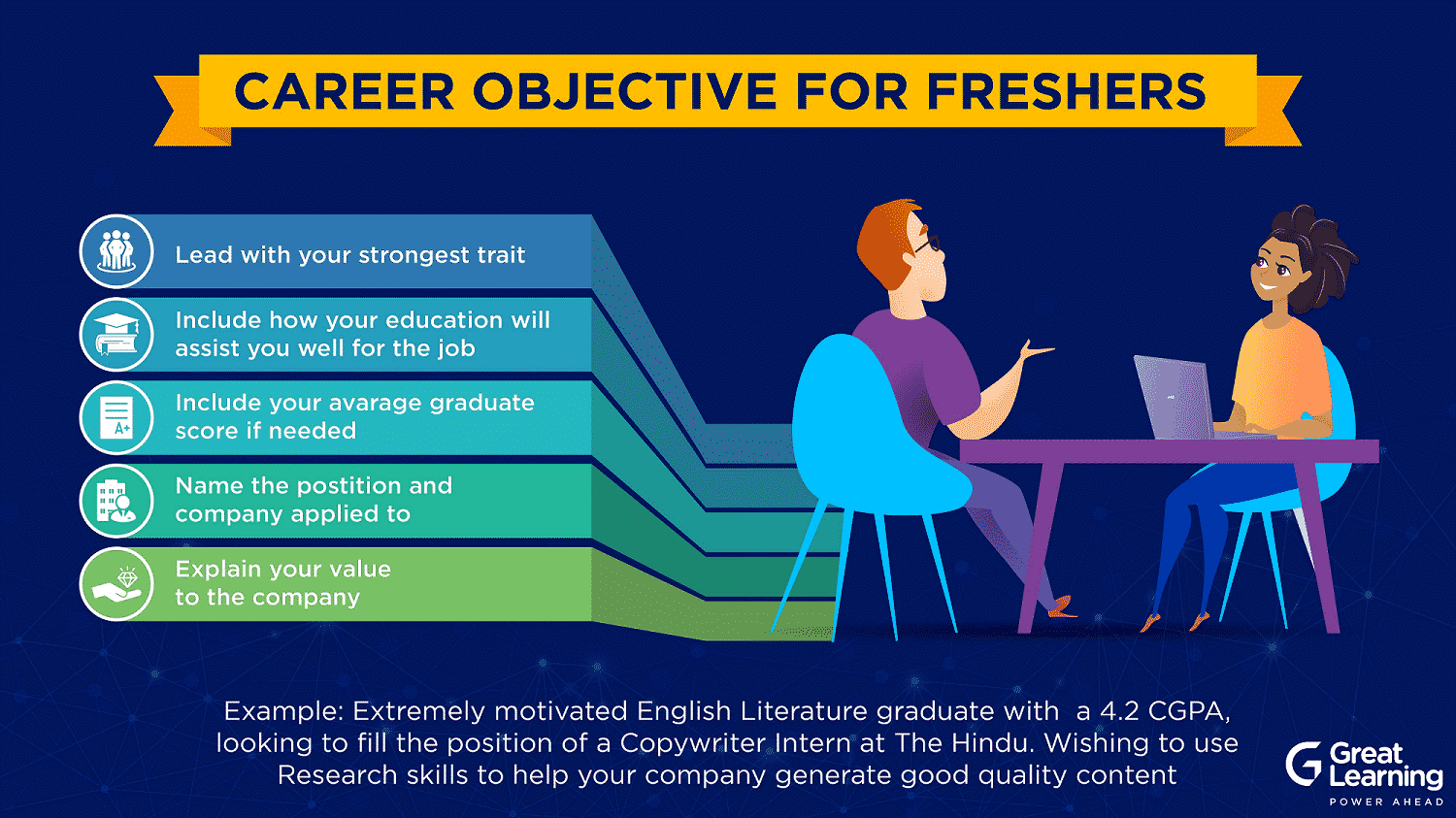- Top 20 Career Options After 12th Commerce
- How To Choose The Right Course After 12th Commerce?
- What Course Should I Choose After 12th Commerce?
- Top Courses After 12th Commerce without Mathematics
- Professional Courses After 12th Commerce
- Hottest Courses After 12th Commerce
- Conclusion
- Free Resources
- Career Options After 12th Commerce FAQs
- Closing Thoughts
Selecting the right career options after 12th commerce is a crucial decision that sets the direction of your professional life. For students from the commerce stream, the options are various, such as:
- Chartered Accountancy (CA)
- Company Secretary (CS)
- Financial Analysis & Services
- Accountancy and Taxation
- Business Management
- Investment Banking
The key to getting started with these careers lies in understanding your own strengths, interests, and aspirations.
This blog will provide a comprehensive list of career options for commerce students after 12th in India, addressing the most common question what can i do after 12th commerce.
Whether you have an analytical mind, a knack for management, a passion for law, or a flare for creativity, there’s a path that’s just right for you for best career options after 12th commerce.

Top 20 Career Options After 12th Commerce
Explore a diverse after 12th commerce courses list featuring top 20 career options, ranging from Chartered Accountancy to Digital Marketing.
1. Chartered Accountancy (CA)
Becoming a Chartered Accountant involves accounting, auditing, taxation, and financial management expertise. CAs provide financial advice, audit financial statements, and help organizations comply with tax regulations.
2. Company Secretary (CS)
Company Secretaries ensure corporate legal compliance and governance. They manage board meetings, maintain statutory records, and provide accurate and timely regulatory filings.
3. Bachelor of Commerce (B.Com)
B.Com offers a foundational understanding of accounting, finance, economics, and management. Graduates can pursue careers in banking, accounting firms, corporate finance, or further specialization through higher studies.
4. Bachelor of Business Administration (BBA)
BBA focuses on business management principles, leadership skills, and operational strategies. It prepares graduates for marketing, finance, human resources, and entrepreneurship roles.
5. Bachelor of Economics
A Bachelor’s in Economics studies economic theories, policies, and systems. Graduates can work in banking, finance, consulting, and government or pursue further studies in economics or related fields.
6. Digital Marketing
Digital marketers use online platforms and tools to promote brands, products, or services. They employ SEO, social media, content marketing, and analytics to reach target audiences and drive business growth.
Discover a wide range of courses designed by industry experts at Great Learning.
Start your journey to career growth today!
7. Chartered Financial Analyst (CFA)
CFAs analyze investments, manage portfolios, and assess financial risks. They work in investment firms, banks, and corporate finance departments, providing asset valuation and financial analysis expertise.
8. Bachelor of Laws (LLB)
LLB prepares students for careers as lawyers or legal advisors. These professionals provide legal counsel, draft contracts, and represent clients in courts, corporate firms, or government agencies.
9. Bachelor in Foreign Trade
This program focuses on international business, trade regulations, logistics, and global market trends. Graduates manage import-export operations, international marketing, and trade finance activities.
10. Hotel Management
Hotel Management involves overseeing hospitality operations, including front office, housekeeping, food and beverage services, and event management within hotels and resorts.
11. Bachelor in Business Studies (BBS)
BBS provides a comprehensive understanding of business principles, management techniques, and organizational behavior. Graduates can pursue careers in business analysis, consulting, or entrepreneurship.
12. Cost and Management Accountancy (CMA)
CMAs specialize in cost accounting, financial planning, and management decision-making. They analyze costs, prepare budgets, and provide insights to improve profitability and operational efficiency within organizations.
13. Data Science and Analytics
Data scientists analyze large datasets using statistical methods and machine learning algorithms to extract meaningful insights. They work across industries to solve complex problems and support data-driven decision-making.
Discover a wide range of courses designed by industry experts at Great Learning.
Start your journey to career growth today!
14. Actuarial Science
Actuaries assess financial risks using mathematical models and statistical methods. They work in the insurance, pensions, and finance sectors to design insurance policies, evaluate financial risks, and manage investments.
15. Graphic Designing
Graphic designers create visual concepts using computer software or by hand to communicate ideas that inspire, inform, or captivate consumers. They develop layouts and production designs for advertisements, brochures, magazines, and corporate reports.
16. Foreign Trade and International Business
Foreign trade and international business professionals manage global operations, including import-export logistics, international marketing, and trade finance. They also navigate international regulations and cultural differences to facilitate cross-border transactions and partnerships.
17. Journalism and Mass Communication
Professionals in journalism and mass communication report news and produce content for newspapers, magazines, websites, or broadcast media. They also conduct interviews and research and write articles to inform the public about current events and issues.
18. Aviation Management
Aviation management involves overseeing the operations of airlines, airports, and related businesses. Professionals in this field manage flight operations, ground services, safety regulations, and customer service.
19. Travel and Tourism Management
Travel and tourism managers oversee operations in the hospitality and travel industry. They manage travel agencies, tour operations, hotels, resorts, and attractions, focusing on customer satisfaction, marketing, and destination management.
20. Risk Management
Risk management involves identifying, assessing, and mitigating risks that could impact an organization’s finances, operations, or reputation. Risk managers work across industries, including finance, insurance, and corporate governance.
These are the best course for commerce students, offering promising career paths suited to your interests and ambitions.
How To Choose The Right Course After 12th Commerce?
1. Assess Personal Interests and Skills
Evaluate your interests, strengths, and career aspirations. Consider subjects or activities that intrigue you and align with your skills and strengths.
2. Research Career Opportunities
Explore career options associated with different courses. Research job prospects, growth opportunities, and industry demand to ensure your chosen course leads to a fulfilling career path.
3. Consider Long-Term Goals
Reflect on your long-term career goals and how each course can help you achieve them. Choose a course that offers opportunities for specialization or further education if needed.
4. Evaluate Course Curriculum
Review the curriculum of each course to understand the subjects, practical exposure, and skills you will gain. Look for courses that provide a balanced mix of theoretical knowledge and helpful application.
5. Seek Guidance from Professionals
Seek advice from career counselors, teachers, or professionals in fields of interest. They can provide insights into industry trends, educational requirements, and potential challenges to help you make an informed decision.
These points will help you make a concise and informed decision on what to do after 12th commerce.
Discover a wide range of courses designed by industry experts at Great Learning.
Start your journey to career growth today!
What Course Should I Choose After 12th Commerce?
1. Bachelors course after 12th commerce
Bachelor of Commerce (B. Com)
Bachelor of Commerce is a 3-year UG program which comes under the best career options after 12th commerce that focuses on subjects such as commerce, Economics, Business Law, Accountancy, Taxation, and finance to impart managerial skills to students while focusing on a particular business area.
B.Com aspirants will learn about general business principles.
Eligibility: Eligibility for BCom courses is 50% marks in class 12 or equivalent examination. The BCom course is the most popular and sought-after course by commerce students. The BCom Syllabus focuses on subjects such as Taxation, Economics, Accounts, etc.
Job Options after B.Com
There are many job options after completing a B.Com degree.
| Job Options After B.Com | Eligibility | Top Recruiters | Average Salary |
|---|---|---|---|
| Financial Risk Manager | Any graduation degree | Deutsche Bank, Deloitte, RBS, HSBC, Citigroup | Rs.10 LPA to Rs.18 LPA |
| Business Analyst | B.Com/ B.Com (Hons) students are given preference | EY, KPMG, Deloitte, PWC | Rs.3.5 LPA to Rs. 5.5 LPA |
| Digital Marketer | Graduation degree | Deloitte, Accenture, Oracle, Gartner | Rs. 4.5 LPA to Rs.10 LPA |
| Accountant | Graduation + Subject-specific Diploma/ Certificate/ Degree | Banks, Corporate Sector Companies, etc | INR 3.5 LPA – INR 18 LPA |
Must Do Free Courses for Commerce Students
2. Bachelor of Economics (BE)
Bachelor of Economics is an another 3 years undergraduate degree course which falls under the commerce career options after 12th.
The degree is about the analysis of the production, distribution, and consumption of goods and services. Students who wish to make it big in Banking and Finance and other major corporate industries can take up a Bachelor of Economics.
Eligibility: Students should clear class 12th board exams with a minimum of 50% aggregate marks or equivalent CGPA from a recognized board
Bachelor of Economics Course Highlights
| Name of the Course | Bachelor of Economics |
|---|---|
| Course Level | Undergraduate |
| Course Duration | 3 years |
| Course Mode | Regular / Full time |
| Course Eligibility Criteria | Class 12th Board exams with 50% aggregate marks |
| Course Admission Process | Merit-Based / Entrance Exams |
| Average Salary (INR) | 3 – 4.5 LPA |
| Areas of Employment | Economic ResearcherSales AnalystEconomistSecurities Analyst TraineeInvestment AnalystFixed Income Portfolio ManagerInvestment AdministratorFinancial Service ManagerCustomer Profit Analyst |
3. Bachelor of Accounting and Finance (BAF)
Bachelor of Accounting and Finance (BAF) is a 3 year undergraduate course after 12 commerce that offers in-depth knowledge in accounting and financial subjects for aspirants to learn the technical skills associated with many of the procedures of financial analysis and accounting standards.
Candidates who have an interest in pursuing a career as an Audit Manager or as an investment banker should take up the course.
Eligibility: Candidates who have completed 10+2 or its equivalent exam from a recognized board with a minimum 50% marks score.
B.Com Accounting and Finance Course Highlights
Listed below are some key highlights of the B.Com Accounting and Finance course:
| Course | BCom Accounting and Finance |
|---|---|
| Full form | Bachelor of Commerce in Accounting and Finance |
| Duration | 3 years |
| Eligibility | 10+2 |
| Level | Undergraduate |
| Admission Process | Entrance and Merit-Based Followed by Interview |
| Average salary | INR 1 to 10 Lakhs |
| Top recruiting companies | EY, KPMG, Deloitte, PWC, Deloitte, Accenture, Oracle, Gartner, SBI, NABARD, PNB, CBI, etc. |
Check out our free excel courses, Business Finance Foundations courses, and Introduction to Corporate Finance courses.
4. Bachelor of Commerce in Banking and Insurance (BBI)
B.Com. in Banking and Insurance is a 3-year full-time undergraduate course that is composed of theoretical subjects dealing with Banking and Insurance.
Eligibility: 10+2 education completed with min 50% from a recognized educational Board.
B.Com. in Banking and Insurance: Course Highlights
| Course | B.Com. in Banking and Insurance |
|---|---|
| Course Level | Under Graduate |
| Duration | 3 years |
| Examination Type | Semester System |
| Eligibility | 10+2 with Commerce subjects, with a minimum aggregate score of 50%. |
| Top recruiting organizations | TCS, Sutherland, HCL, DELL, CTS, CITY Bank, etc. |
| Top recruiting areas | Banks, investments, the insurance industry, savings and loan associations, and such. |
| Top job profiles | Accountant, Financial Advisor, Marketing Agent, and Sales Representative, among others. |
| Average Starting Salary | INR 2 to 20 lakhs |
5. Bachelor of Commerce in Financial Market (BFM)
B.Com. in Financial Markets is a 3-year undergraduate course in Financial Markets. Financial Markets are typically defined as a mechanism that enables people to trade financial securities such as bonds, stocks, and commodities in the market.
The course involves an advanced study of debt & equity markets, foreign exchange markets, and financial markets.
Eligibility: Candidates should have completed 10+2 or equivalent qualification in the Commerce stream from a recognized educational board with a minimum aggregate score of 50%.
B.Com. in Financial Market Highlights
| Course | B.Com. in Financial Market |
|---|---|
| Course Level | Graduation |
| Duration | 3 years |
| Examination Type | Semester System/ Year-wise |
| Eligibility | 10+2 or equivalent qualification from a recognized educational Board |
| Average Starting Salary | INR 3 to 10 lacs per annum |
| Top Recruiting Companies | Public Accounting Firms, Policy Planning, Foreign Trade, Banks, Budget Planning, Inventory Control, Merchant Banking, Marketing, etc. |
| Job Positions | Finance Controller, Treasurer, Finance Officer, Credit and Cash Manager, Risk Manager, Financial Research Manager, Financial Planning Manager, Trainee Associate, Financial Planning Consultant, etc. |
Discover a wide range of courses designed by industry experts at Great Learning.
Start your journey to career growth today!
Top Courses After 12th Commerce without Mathematics
1. Bachelor of Commerce (B.Com)
- A Bachelor of Commerce (B.Com) is a popular course after 12 commerce that does not require mathematics.
- Duration- This three-year degree program covers essential concepts in finance, accounts, business management, and related fields.
- The course offers an overview of various commerce-related fields, providing familiarity with:
- Taxation
- Cost accounting
- Financial Accounting
- Bookkeeping
- Business management
- Accountancy, among other topics
B.Com is exclusively available to students who have completed their 12th standard and is an excellent choice for students interested commerce stream career options such as finance, insurance, accountancy, or business management careers.
2. B.Com Marketing
- B.Com Marketing is a 3-year undergraduate course designed for aspiring marketers.
- The curriculum focuses on concepts like:
- Sales management
- Quality management
- Communication
- Advertising
- Consumer behavior
- Market research, and more
- This course emphasizes creative skills and logical thinking, which are essential for generating original advertising and marketing campaign ideas.
- It offers a balanced blend of theoretical knowledge and practical subjects, providing hands-on experience in real-time marketing scenarios.
- B.Com Marketing prepares students for commerce career options in marketing, sales management, advertising, brand management, and market research.
B.Com Tourism & Travel Management
- The Bachelor of Commerce in Tourism and Travel Management program is a 3-year, full-time undergraduate program.
- It emphasizes the travel and tourism industry’s financial and economic management aspects.
- The curriculum includes subjects such as:
- Corporate accounting
- Tourism marketing
- Hotel management
- Business communication
- Economics
- Financial management
- Revenue management
- Eco-tourism, and more
- The course provides comprehensive knowledge and skills necessary for managing operations in the tourism sector.
- B.Com Tourism & Travel Management prepares students for careers in travel agencies, tour operations, hospitality management, event planning, and tourism development.
Professional Courses After 12th Commerce
Bachelor of Business Administration (BBA)
BBA or Bachelor of Business Administration is a popular choice for professional courses after 12th commerce. It is a 3 year undergraduate program that helps you gain knowledge about business principles and business administration.
It will help you enhance your leadership abilities and cultivate a business vision. You can also choose a specialization in Marketing, HR, or Finance.
Taking up a BBA Degree will help you understand business management, accounting, quantitative techniques for management, and much more.
Eligibility
An individual who has completed a 10+2 or equivalent exam from any recognized board is eligible to take up a BBA Course. Some colleges look for individuals who have secured 50% marks in the qualifying exam.
BBA: Course Highlights
| Name of the Course | BBA |
|---|---|
| Course Level | Undergraduate |
| Duration | 3 years |
| Examination Type | Semester/ Year-wise |
| Eligibility | 10+2 or equivalent qualification from a recognized educational Board |
| Average Starting Salary | INR 4 lacs per annum |
| Job Positions | Business Administration Researcher, Business Consultant, Marketing Manager, Finance Manager, Human Resource Manager, Research and Development Manager |
Bachelor of Business Administration – International Business (BBA-IB)
BBA-IB or Bachelor of Business Administration International Business is an industry-based course that has been developed to create an understanding of foreign trade
It helps understand the importance of foreign trade in the Indian economic context. BBA-IB is a 3-year professional degree course that helps you understand strategic management, operations management, marketing, and finance.
Eligibility: 10 + 2 in any stream. However, some colleges may have Mathematics or Commerce as a requirement
BBA – IB: Course Highlights
| Name of the Course | BBA – IB |
|---|---|
| Course Level | Undergraduate |
| Course Duration | 3 years |
| Examination Type | Semester-wise |
| Eligibility | 10+2 or equivalent qualification from a recognized educational Board. Some colleges may require Mathematics and Commerce. |
| Average Course Fees | INR 4.5-6 Lakhs |
| Job Profiles | International Logistics Manager, International Distribution Manager, International Finance Manager, International Training Manager, Global Business Manager, Consultant |
Bachelor of Computer Application (BCA)
BCA is a 3-year undergraduate degree program focusing on computer applications and software development. It is tailored for students who have completed their 12th standard education, particularly those from Commerce or Science backgrounds.
The curriculum covers diverse aspects of computer science, including:
- Programming languages
- Database management
- Software engineering
- Web development
BCA equips students with skills essential for commerce career options such as:
- IT user support
- Software development
- System management
Graduates can pursue opportunities in both private enterprises and public sectors, contributing to various IT-driven roles and responsibilities.
Eligibility: 10+2 in Commerce or Science Stream
BBA – CA: Course Highlights
| Name of the Course | BBA – CA |
|---|---|
| Course Level | Undergraduate |
| Course Duration | 3 years or 6 semesters |
| Eligibility | 10+2 in Commerce or Science Stream |
| Course Fee | INR 1-6 Lakhs |
| Average Salary | INR 2 lakhs-10 lakhs |
| Recruiting Companies | Accenture, Bajaj, Biocon, Genpact, IBM, Ford Motors, Dell, HDFC Bank, and ICICI Bank |
Discover a wide range of courses designed by industry experts at Great Learning.
Start your journey to career growth today!
Industry Oriented Integrated Courses
The industry-oriented job opportunities are enormous in India. You can choose from various industry-oriented courses such as integrated BBA, integrated BBA-IB, integrated B.Com, and integrated BBA-CA.
In these courses, the subjects are taught with the industry perspective kept in mind, and teaching is approached from an industry point of view.
Eligibility: 12th with a minimum aggregate score of 60%.
1. Chartered Accountancy
CA or Chartered Accountancy is a prestigious course or an international accounting designation that is granted to accounting professionals across the world, except for the United States.
The equivalent of CA in the US is the CPA or certified public accountant. Through this course, you will learn subjects such as tax laws, taxation, corporate law, business laws, and auditing.
This course is divided into three levels, i.e.:
- CPT (Common Proficiency Test)
- IPCC (Integrated Professional Competence Course)
- FC (Final course)
Students need to clear a previous level to take up the next exam. CA is one of the most sought-after career options after 12th for commerce students.
The overall difficulty of this course is very high and therefore it might take some students multiple attempts to clear a level.
You should check out the maximum number of attempts before pursuing the course so that you can prepare better. It is among the most paid career choice in the field of commerce.
Some of the subjects you would master while pursuing this course are:
- Accounting
- Cost Accounting and Financial Management
- Information Technology
- Taxation
- Auditing and Assurance
- Ethics and Communication
- Corporate and other Laws
- Business Laws, and others
You can get all information regarding this course on the ICAI website.
Eligibility: 10+2 with a minimum 60% aggregate
Chartered Accountancy: Course Highlights
| Name of the Course | Chartered Accountancy |
|---|---|
| Course Level | Undergraduate |
| Course Duration | 3 years – 4 years |
| Eligibility | 10+2 with a minimum 60% aggregate |
| Average Salary | INR 7 lakhs |
| Job Profiles | Internal Auditing, Forensic Auditing, Career in Accounting and Finance, Tax Auditing, Statutory Audit under applicable statutes, Managing Treasury function, Forensic Auditing, |
Also Read: Salary Calculator
2. Company Secretary (CS)
Unlike CA, the company secretary program falls under the administration of The Institute of Company Secretaries of India(ICSI). The commerce students with an inclination towards theory courses in law would prefer this course.
Just like the CA course, the CS professional program also has levels to clear until they reach the final level.
The course informs the students about legal proposes and agreements of companies. It will eventually help you achieve senior positions in corporates and large firms.
3. Cost and Management Accountant
Cost and Management Accountant is a professional course offered by ICAI (Institute of Cost Accountants of India). It is very similar to CA and CS.
The curriculum of this program is formed on the basis of different levels (foundation, intermediate, and final) that the students need to clear to complete the course.
The students are required to obtain expertise in a total of 20 subjects, some of which are mentioned below:
- Business Mathematics and Statistics
- Laws and Ethics
- Accounting
- Economics
- Management
- Company Accounts and Audit
- Operation Management Information System
- Business Strategy & Cost Management
You can check out the complete syllabus and papers for CMA here
4. Mass Communications and Journalism
Mass Communication and Journalism is a completely different career path from those mentioned above. Most of the career paths after 12th commerce are along the lines of finance and business fields.
This course is for the students who see themselves working in media houses and related fields of content creation and delivery.
It is a 3 year program that develops skills and helps you explore career options in media, public relations, corporate communication, event management, and other similar fields.
Hottest Courses After 12th Commerce
1. Digital Marketing
Digital Marketing is know to come under the best commerce career options after 12th which involves promoting products or services using digital channels like social media, search engines, email, and websites.
The curriculum includes:
- Search engine optimization (SEO)
- Pay-per-click advertising (PPC)
- Content marketing
- Social media marketing
- Email marketing
Key Point: This field is accessible to commerce students due to its focus on marketing strategies and digital tools rather than technical coding.
Digital Marketing prepares students for careers in:
- Digital marketing strategy
- Social media management
- Content creation
- Online advertising
2. Business Analytics
Business Analytics is another best course after 12 commerce which uses data analysis tools and techniques to solve business problems and improve decision-making.
It covers areas such as:
- Data modeling
- Predictive analytics
- Business intelligence
- Statistical analysis
- Data visualization
Key Point: The course is popular among commerce students who want to leverage their analytical skills to drive business insights.
Business Analytics prepares students for roles in:
- Business analysis
- Data analysis
- Market research
- Strategic planning
3. Data Science
Data Science involves analyzing large datasets using statistical techniques and machine learning algorithms to extract insights and inform decision-making.
It covers topics such as:
- Data mining
- Machine learning
- Statistical analysis
- Data visualization
- Big data technologies
Key Point: Many students from non-science backgrounds, including those in commerce, pursue data science thanks to the accessibility of programming languages like Python.
Data Science prepares students for careers in:
- Data analysis
- Data Engineering
- Business intelligence
- Machine learning engineering
4. Cloud Computing
Cloud Computing involves delivering computing services such as servers, storage, databases, networking, and software over the Internet (the cloud).
It covers topics such as:
- Cloud architecture
- Virtualization
- Cloud Security
- Cloud service models (IaaS, PaaS, SaaS)
- Data storage and management
Key Point: Students without a science background can quickly enter the field with user-friendly platforms and services.
Cloud Computing prepares students for roles in:
- Cloud administration
- Cloud architecture
- Cloud security management
- IT infrastructure management
5. Cyber Security
Cyber Security is booming career after 12th commerce as it help companies to protects computer systems, networks, and data from cyber threats and attacks.
The curriculum includes:
- Network security
- Ethical hacking
- Information security management
- Cyber law and compliance
- Risk assessment
Key Point: With the rise of accessible learning resources and tools, commerce students are increasingly pursuing careers in this field.
Cyber Security prepares students for careers in:
- Information security analysis
- Ethical hacking
- Security consulting
- Risk management
These best courses after 12th commerce provide diverse career opportunities for commerce students, leveraging accessible tools and technologies to enter tech-driven fields.
Discover a wide range of courses designed by industry experts at Great Learning.
Start your journey to career growth today!
Conclusion
Selecting the courses after 12th commerce involves exploring various dynamic fields such as finance, management, and cutting-edge technologies.
With the increasing accessibility of learning resources, even students from non-science backgrounds can excel in high-demand courses like AI/ML Course, Data Science and Business Analytics Course, Cloud Computing Course, and Digital Marketing Course.
Great Learning, renowned for its comprehensive programs and expert faculty, offers the perfect platform to master these courses.
Our hands-on approach and industry-aligned curriculum prepare students for immediate job placements and thriving in competitive roles across diverse industries.
Free Resources
- Smart English Basics for Professionals
- Quantitative Aptitude Basics
- Case Studies in Sales and Marketing
- Marketing Foundations
- 4Ps of Marketing Mix
- Business Finance Foundations
- Basic Accounting Course
Career Options After 12th Commerce FAQs
Courses after 12th commerce with high salary includes:
B.Com (Bachelor of Commerce)
BBA (Bachelor of Business Administration)
CA (Chartered Accountancy)
CS (Company Secretary)
CMA (Cost and Management Accountancy)
BMS (Bachelor of Management Studies)
Banking and Finance courses
Economics (Hons.) or related courses
Some of the highest-paying jobs in the commerce field include Investment Bankers, Management Consultants, Chartered Accountants, and Data Analysts.
After completing 12th commerce, you can pursue a variety of careers in fields such as finance, accounting, management, economics, banking, and more.
In terms of future prospects, careers in fields like Data Science, Financial Analysis, E-commerce, and Digital Marketing are gaining prominence as a best courses after 12th commerce.
Both BBA and B.Com are good commerce courses after 12th, but they have different focuses. BBA is more management-oriented, while B.Com provides a broader understanding of commerce subjects. Choose based on your interests and career goals.
Salaries vary widely based on factors like job role, industry, experience, and location. However, professions in finance, investment banking, and management consulting tend to offer higher salaries.
Fields like Data Science, Digital Marketing, Financial Analytics, and E-commerce are currently in high demand due to technological advancements and changing consumer behavior.
Subjects like Data Science, Artificial Intelligence, and Finance are among the fields with high scope due to their relevance in various industries.
Yes, commerce continues to have significant scope in the future. Businesses and industries will always require professionals with expertise in finance, accounting, management, and related fields.
Remember that the “best” choice depends on your interests, skills, and long-term goals. It’s important to research thoroughly, consider your passions, and explore the options that align with your aspirations and strengths.
Closing Thoughts
We hope that this blog on career options after 12th commerce was helpful. If you are from the commerce stream and found yourself in a dilemma regarding the various options available in the market, we hope this blog provided clarity. There are numerous options such as Marketing, Finance, Human Resources, Accounting, or Business Administration. Before entering the commerce stream, you can also research more on the eligibility, salary trends, and jobs available. To explore more, consider enrolling in free online courses to gain further insights and enhance your knowledge in these fields.
You can also plan your career success with Great Learning’s Salary Builder and get the powerful insights required to grow your career.
Also Read: Career Planning Pro Tips







